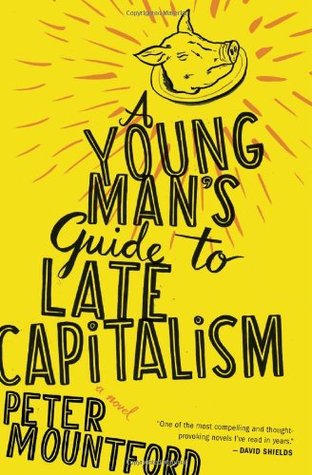Gabriel is a young business writer who left New York for a traveling gig with a high-rolling hedge fund. It’s 2005 and his first assignment is to La Paz, Bolivia. He’s charged with assessing the political and economic prospects in this volatile atmosphere, right after the populist Evo Morales is elected president.
Gabriel is both an interesting and irritating protagonist. He’s easy to hate, yet easy to dismiss as a loser unworthy of hatred. He fancies himself something of a hyper-capitalist hero. When it comes to character, Gabriel lacks most redeeming values. He’s dishonest, insensitive, demanding, weak, overzealous, apathetic yet arrogant. He’s not quite an asshole, but that’s only because he’s too bland. If he had more guts or gave enough shits about others to deliberately harm them, then maybe he could be an asshole. As a former journalist, he has persistence and gumption, which are good qualities and tempt the reader to relate to his character just a bit.
Yet, at times, I’m tempted to think Gabriel is a decent guy who’s simply making his own way in a crazy and corrupt world, just like all those who are richer, more powerful and more corrupt than him. In a way, yes, Gabriel is a mere participant in one particular match, part of a larger and endlessly complex game.
Mountford uses a third-person point of view close to Gabriel, which is a great way to position the narrative. I don’t think I could stand reading Gabriel’s first-person point of view for more than a few pages.
Gabriel’s identity seems in a state of constant flux: “Growing up, he never considered the possibility that his identity might be a fixed thing, that it might not be something that could or should be adjusted for each situation. He had been born with multiple identities, after all: Californian, Chilean, Soviet, bourgeois, only child of a single mother, Latino, Caucasian. In these, he saw options.”
His mother fled Pinochet’s Chile in the late 1970s. She is a lefty and an academic, and their relationship is key to the story, especially the unraveling and climax.
I get a bit distracted when the author continually interrupts the present action and dialogue to go on pages-long flashbacks, then drops the reader right back into the conversation like nothing happened. The backstory is great, but too many times it’s just dropped right into the middle of a really good scene and pulls me out of the Bolivian dream.
I do think the book, though a novel, offers an interesting historical analysis of Bolivia. Mountford strings together a deep historical perspective, chronicling the story of powerful men who have exploited the land and people of Bolivia. Gabriel is just the newest generation in a long chain of men just like him.
One of my favorite lines from the book: “what had struck him was not Bolivia itself but what it implied about the United States. That despite being one of the safest and most prosperous countries in human history, the United States was actually a very bizarre place.”
At times, Mountford tells a little too much a little too bluntly. (“He had made a bad decision when he had agreed to come down to Bolivia.”)
But when the introspection is firing, Gabriel actually becomes an interesting character to follow. For example, at one point Gabriel reflects on the Buddhist notion that, “all human suffering is identified, very succinctly, as craving. Tanha, it’s called, and it gives rise to the parasitic defilements of greed, hatred, and delusion. But the root of our problem, the cause of all human misery, is tanha: our insatiable craving for more. Economists have come to a similar judgment of the human condition, but they don’t levy any value judgments. To them, it simply is.”
The other characters are incredibly rich and round, however, sprinkled in with a few necessary stock characters here and there, representing different types of players in this globalized capital shuffle.
This book is also a coming of age story, wherein the young libertarian learns markets and capital don’t regulate themselves to promote the common good. “He liked seat-belt laws too, and rules about air bags. He liked his Food and Drug Administration, with its random sanitation checks and obsessive rules. He liked his milk thoroughly pasteurized. All of this would have seemed priggish to him once, but now it made so much sense.”
I think this would be a solid read for Americans from all different political and economic backgrounds. Mountford poses a lot of interesting questions without offering clichéd responses or blunt answers. And all of this is done through a well-written, well-plotted, intriguing narrative.

No comments:
Post a Comment